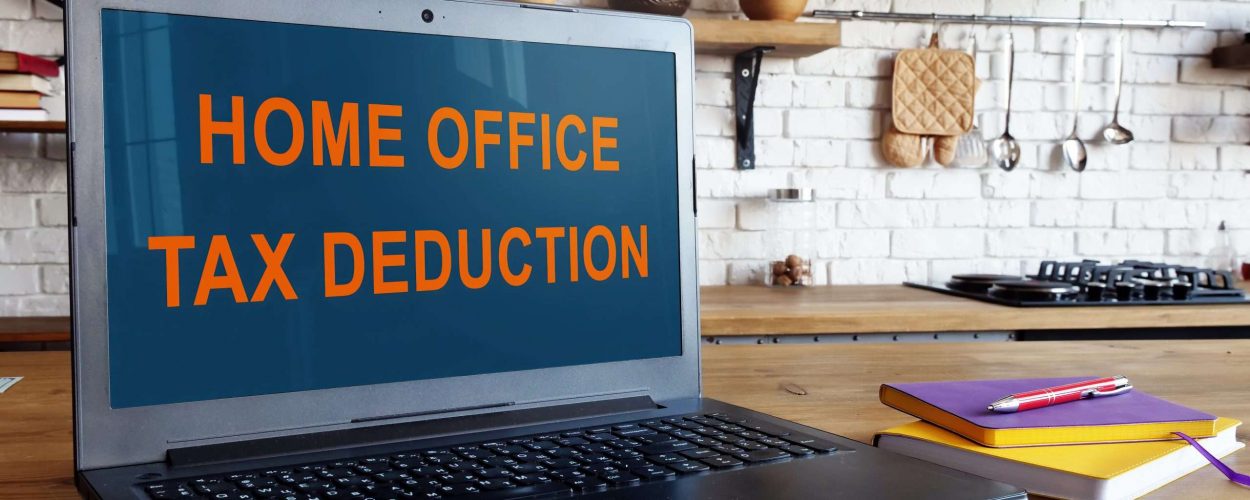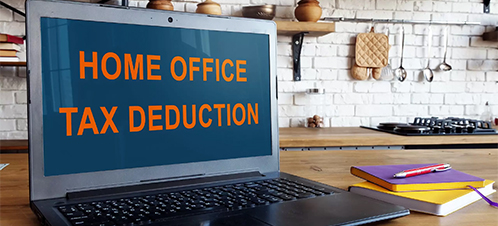Claiming Home Office Deduction: Is it worth it?

Several industry experts believe that the hybrid working model, consisting of the work from home option, increased its pace because of the pandemic. Individuals adopted the new model over a decade earlier, but it was bound to happen.
At the same time, some industries hadn’t felt a change in their operations mainly because they had already practiced the work-from-home model before the pandemic emerged.
The first idea that comes to one’s mind is that forced working relocation might provide the workers with a tax deduction, but it is not true.
The Tax Cuts and Jobs Act of 2017 have stopped most states from deducting unreimbursed employee expenses. You should check your specific state requirements before advancing any further.
The question is, who qualifies for these tax deductions after the recent change? Let’s look into it.
Place of Business
Self-employed workers are the first ones entitled to tax deductions for their home office. It can be freelancers, designers, bloggers, or other individuals who work from their homes directly.
However, the qualification for this differs because the claimants must use a portion of their house as a permanent principal place of business. There are no space limitations in these laws as members can choose a room in their homes, an apartment, or a dedicated structure. However, the designated area cannot be used for personal reasons whatsoever.
Have Question?
CONTACT US NOW !!!
(866)868-2338
Schedule A Free Consultation
What can the Home Office Claimers Deduct?
Most of the deductibles in the Home Office deduction are the ones that qualify for schedule A. These may include:
- Real estate taxes
- Home mortgage interest
- Mortgage insurance premiums
- Casualty losses
- Losses from a federally announced natural disaster
However, some other metrics may qualify for the home office deduction in the long run. It includes:
- Depreciation
- Insurance
- Rent
- Repairs
- Utilities and services
Nothing is Confirmed Yet
Individuals looking for a home office deduction should keep in mind that there’s a lot that’s still unclear because the taxes for 2022 will not surface until December. So, those looking for a deduction should keep an eye out for the news and plan their home office deduction accordingly.
Tips for Claiming a Home Office Deduction
We have talked about most of the technical aspects of the home office tax deduction you should know. However, some additional tips can help you with claiming a home office deduction efficiently.
Plan your Claim in Advance
A common mistake most home office tax reduction filers make is waiting for the last moment. The process for the home office deduction can be quite complicated, depending on your situation.
Therefore, it’s imperative to prepare for the deduction in advance. You should calculate all the technical aspects of your tax reduction claim and estimate the tax reduction amount you will receive. However, it will take some time to do this efficiently.
Consult with a Tax Professional
Hiring a tax professional or consulting with them for your home office deduction can be a good way to accelerate the process. These professionals have a clearer understanding of how things work and what you can do to get your tax reductions on time.
Most tax consultants also provide free consultation and advice. So, it’s easy to reach out to them, discuss your existing home office reduction structure and squeeze the most out of the tax reduction.
For example, if you are a lawyer creating legal documents for your clients through your place of business but your family uses it occasionally, you do not qualify for it. There’s strict monitoring on the kind of use you maintain, so ensure this strictness before claiming any tax deductions through the law.
People planning to claim the tax deductions need to fill out the IRS Form 8829, as well as a Schedule C. However, some tax office deduction qualifications also include other types of work-related systems. These include:
- Daycare facilities
- Product samples
- Storage for certain types of inventories
How many deductions can you Apply for?
Determining the amount you can ask for in your home office deduction based on your situation. Therefore, there are two approaches to determine it.
The Simple Method
The simple method requires the tax reduction claimers to check for
- The square footage of the area you have chosen as your office home.
- Total income received from the business at a home
- Total of your non-business expenses
Multiply the area allowed by $5 and subtract your business expenses from the total income earned. If these expenses are more than your gross income, you cannot qualify for the tax reduction claim.
Determining the Actual Expense
The actual expense for your business is a bit more complicated than the previous method. You need to determine the total percentage of your property listed as a home office location and then see what it qualifies for according to the IRS standards. There are a total of three different divisions set by the IRS to keep in mind. These include:
- Direct (deductible in full)
- Indirect (only deductible for the home business area %)
- Unrelated (not deductible)
Which Method is more Suitable?
The method you choose should not have much impact on the results you get. But, it is still imperative to maintain proper records for the IRS reference later on. It is because a home office deduction can be a red flag and can trigger an IRS audit. But there’s nothing to worry about as long as you have all your information lined down correctly.
Do not Overestimate your Home Office Tax Reduction.
Most people who are filing their home office tax reduction for the first time overestimate the total amount they will receive from the claim. It can lead to financial mismanagement and other complications.
Therefore, you should determine the bare minimum expected, wait for the taxation details in December, and see where you stand. Any amount you get in addition to the bare minimum will be a plus for your business.
Bottom Line
Considering a home office deduction relies on various factors, including your home office space, tax details announced, and your industry. It’s best to be careful with your tax deduction claims because the IRS may perform an audit on your home office soon after you file for a tax deduction. Consult with a tax professional before finalizing your tax reduction claim, and you should have no trouble with it.
Have Question?
CONTACT US NOW !!!
(866)868-2338
Schedule A Free Consultation
Recommended Article
[pt_view id=”a445897oix”]
